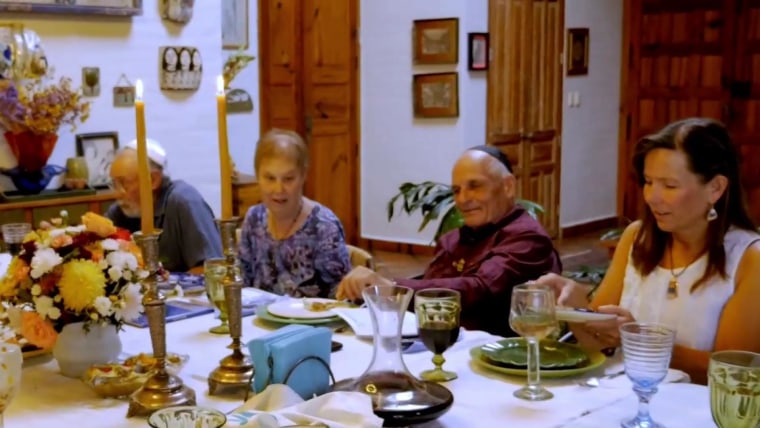Every Passover seder’s haggada includes a portion called “the four questions,” a quartet of inquiries reminding Jews of the evening’s sacred uniqueness. The words are traditionally recited or chanted by the youngest child at the table, with the series’ first question roughly translating to, “Why is this night different from all other nights?”
For the past month, Jews (like me) and gentiles have been forced to ask that same question: How is this evening’s self-quarantine any different from last night’s, or the night before? A fog of dread coats my monotony, my self-distanced routines only broken up by news reports detailing the increasing numbers of sick and dying. It should be easy to set aside at least one evening for reflection and celebration of our collective past, of what it means to be a Jew in an increasingly fractured, dystopian world.
For the past month, Jews (like me) and gentiles have been forced to ask that same question: How is this evening’s self-quarantine any different from last night’s?
And yet, even remembering that the smallest things can differentiate this evening “from all other nights,” why does this year’s Passover still so ring hollow to me? Perhaps it’s because, while I know what we Jews are supposed to commemorate — the Israelites’ Biblical emancipation from Egypt — there is the nagging feeling that the one plague we are now enduring is more than enough. As we are stuck in our homes, recalling another nine examples of pestilence and disease seems a bit obscene.
Get the think newsletter.
At the same time, tonight reminds me that my relatively comfortable quarantine exists within a society built by the enslaved. And our efforts to cure and comfort are stymied by a barely functioning government bled dry from decades of draconian cuts, and now led by a man who, much like the pharaohs, believes himself to be untouchable.
Passover is meant as a celebration of how far Jews have come from our troubled pasts, but it is also a reminder of how far all of us as a society still have to go. This year, I find it highlighting the tyranny that is late capitalism, a system forcing so many of us to brave potentially contaminated work environments for scraps of pay. It shines a brutal light on a culture in which demagogues horde their incomprehensible wealth while the rest of us tuck away what little we can — knowing it may not be enough.
This year’s retelling of the Israelite’s exodus will be a tragic comedy — Jews escaping bondage to have many of their descendants wind up living in a nation that claims to be the richest, most compassionate and freedom-loving country in the world, while it simultaneously asks its doctors to reuse medical supplies and warehouse workers to surrender their safety for minimum wage.
Passover, arguably more than any other Jewish holiday, should spur us into action. In recent years, some communities have turned traditional seders into opportunities for social justice, to help with tikkun olam — the belief in building a better future by helping heal a gravely injured world. Let this be the year to take that one step further, to not only heal the world, but to demand we never let our modern-day pharaohs degrade and dehumanize us again.
Seders traditionally conclude with its participants collectively reciting the line, “L’Shana Haba’ah,” or, “Next year in Jerusalem.” With its origins dating to at least the 15th century, the phrase was meant by diaspora Jews as a hopeful meditation on one day returning to the Holy Land. Since then, it has taken on a variety of meanings. For many, “Next year in Jerusalem” is meant literally, a prayer to eventually live in the state of Israel. For some progressive and leftist Jews — myself included— our Jerusalem is more abstract. For us, the line doesn’t represent the desire to move somewhere else, but the desire to create a spiritual Jerusalem in the here and now.
Passover, in so many ways, is a reminder for Jews — of what was, what is, and what will be. It’s important to remember that a quarantined seder does not detract from the holiday. If anything, it strengthens its messages of mindfulness, humanity and time. Even during the Holocaust, we whispered the four questions to sanctify an evening. Even in Nazi death camps, our seders ended with the hope for another year of life, of finding a long-lost spiritual home, far away from a spring evening’s chilly, unfamiliarly bitter air.












